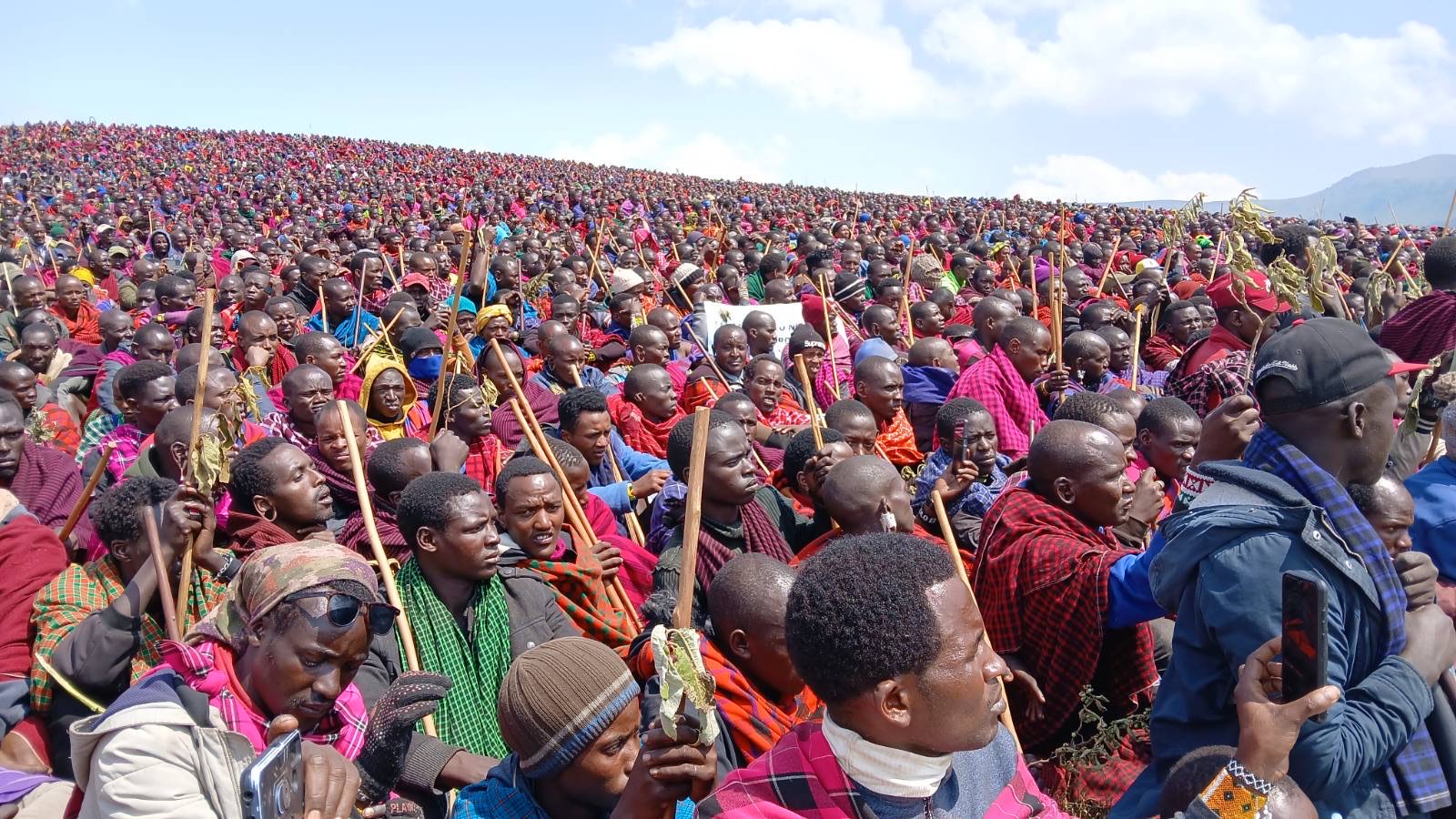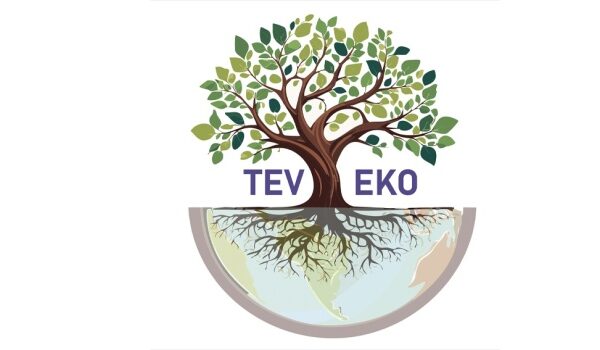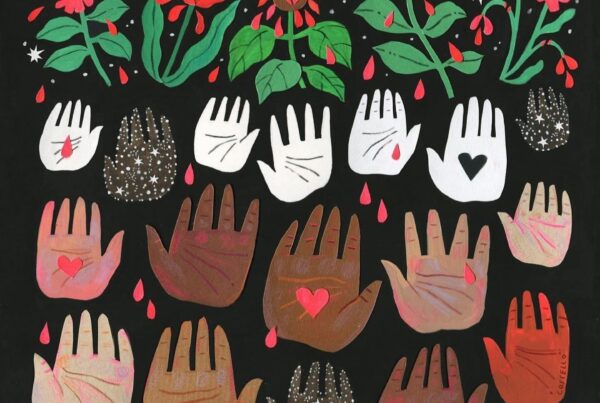A leaked document details the Tanzanian Government’s plans to expand fortress-style Game Reserves by annexing 80 villages and Maasai ancestral land. Recent protests against threatened evictions in Ngorongoro cast further light upon the battle to defend the existence of the Maasai against oppressive Government policy and the tourism lobby. Indigenous groups call for remediation and reform.
Set within an atmosphere of increasing contention, the sensitive document unveils plans made by the Tanzanian Government to undertake the most extensive annexation of Maasai land since the colonial period, including proposals to designate significant areas of Game Controlled Land as Game Reserve (see map below). This controversial change in land classification would grant conservation organisations, trophy hunters and safari outfitters sole access to ancestral land, which is and has long been integral to the culture and survival of the pastoralist Maasai communities who stand to lose access.
A land grab refers to the forcible acquisition of land, driven by for-profit industries, such as agriculture, tourism and conservation, often displacing local communities. Indeed, in Tanzania, these sectors depend upon the annexation of land and the colonial imagination of a ‘natural’ Africa void of human presence. This ‘fortress conservation’ model of land-use conflicts with the Maasai ethos of coexistent stewardship. Western conservation bodies, namely the WWF and Frankfurt Zoological Society, face criticism from human rights organisations for gaining benefit from Maasai displacement.
Crucially, the distinction between accessible Game Controlled Areas and inaccessible Game Reserve land is routinely enforced by violence.
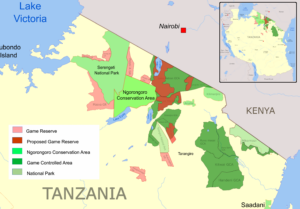
This map details the extent of the alleged proposal to annex land, here labelled ‘Proposed Game Reserve’ (in brown). It is a visual representation of information across various publications cited in this article. It is not a primary source but intended to give readers an understanding of scale.
In an adjacent move, a decree, published on the 2nd of August, ordered the immediate dissolution of 25 villages and the eviction of 120.000 Maasai from c.8300km2 of land in the Ngorongoro Conservation Area (NCA). This step further advances the Government’s plan to classify culturally significant land as a Game Reserve. The NCA was created and designated as a place of safety for the Maasai in 1959 following their systematic displacement from the Serengeti by British colonial forces. Consequently, the NCA is a legal and reputational complication for a Government wishing to prioritise foreign investment at the cost of human rights.
Following widespread protests against this decree, on the 22nd of August 2024 the Arusha High Court ordered that the Government suspend its attempt to delist the ancestral Maasai land. An assessment to determine the legality of the decree will be undertaken by the court. Yet, the threat of annexation remains.
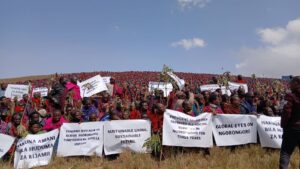
Maasai communities protest against a decree served by the Tanzanian Government which announced the delisting of 25 villages. This would result in the displacement of 120,000 people. A legal challenge has since been mounted. August 2024. Credit known to the authors.
The Tanzanian Government’s previous conduct displays a marked disregard for the rulings of the High Court. An injunction was granted in 2018 by the East Africa Court of Justice (EACJ) in response to evidence of violence and the burning of Maasai ‘Bomas’ during the Loliondo eviction attempts of 2017. However, in 2022 the Government renewed violent demarcation exercises in defiance of the injunction. Moreover, 2023 saw authorities conduct a large-scale seizure of Maasai livestock in violation of a High Court injunction granted to restore access and grazing rights to pastoralist communities. The Government has also been accused of voter suppression following its decision to remove the Ngorongoro Division from the voting register as a result of its August 2nd decree.
Amongst the Maasai, faith in the power of legal process is justifiably frail. The clear pattern of governmental disregard for due process is exemplified by previous eviction attempts undertaken in 2009, 2013, 2017 and 2022. The forced removal of Ngorongoro residents, ongoing since 2022, has been preceded by the removal of social provision and health care, actions which appear to be intended to provoke relocation. Maasai community members describe the restrictions as a “long-suffered social service blockade”. This state-sanctioned degradation of living standards is compounded by instances of extrajudicial violence and intimidation.
As of the 18th of April, the World Bank suspended funding contributions of $150 million towards resourcing tourism industry growth in Tanzania. The bank cited its deep concerns regarding “allegations of abuse and injustice” as motivation. On the 7th June, the EU denied Tanzania €19 million of NaturAfrica funding, with alternative recipients committed to upholding human rights obligations. Despite this diplomatic acknowledgement of wrongdoing, the Government’s efforts to displace the Maasai have continued unabated. The Tanzanian government is increasingly able to rely on funding from states with poor human rights records, namely the UAE, meaning the impact of sanctions may be limited.
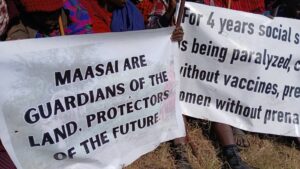
Close-up of signs at the protest by Maasai in August 2024. Credit known to the authors.
Given the high court injunction currently in place, it is now vital to urge revision of the Government’s broader intentions which would lead to the displacement of pastoralist groups, contained both within the leaked document and the Government’s 2021-2026 Strategic Plan. The Ngorongoro evictions and removal of civil liberties are deemed a litmus test for planned land grabs. November 2024’s upcoming local elections will require increased scrutiny, as will the conclusion of the High Court’s assessment. The law can be leveraged, but not relied upon.
The Maasai community in Tanzania calls for: evictions to be halted immediately; the international community to investigate evidence of human rights abuse; and legal and disciplinary action to be taken against the government officials and civil servants who facilitate such abuse. Broader constitutional reform is necessary to remove colonial policy from conservation practice. Western audiences must reevaluate their understanding of safari expeditions and conservation initiatives to include the reality that they are made possible by the violence of land grabs and the violation of human rights.
Research for this article was a collaboration between journalists, human rights defenders and community members who prefer to stay anonymous due to safety concerns. It was published in good faith that the information shared by defenders is valid.


